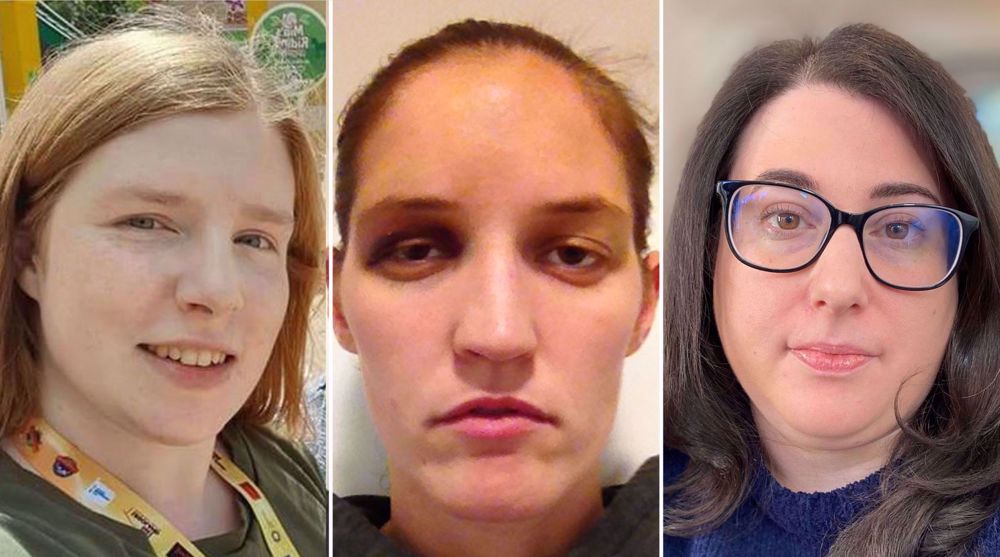A new investigation revealed that tens of thousands of mental health patients have been raped, sexually abused, assaulted, or harassed while being treated in UK’s National Health Service (NHS) mental hospitals, in what is described as a “national scandal.”
The joint investigation carried out by The Independent and Sky News and run on Sunday, uncovered nearly 20,000 “sexual safety incidents”, involving both patients and staff, across more than 30 mental health trusts in England between 2019 and 2023.
The report defines sexual safety incidents as any unwanted sexual behavior that makes a person feel uncomfortable or unsafe. This includes rape, sexual assault, sexual harassment, comments of a sexual nature, or observing sexual behavior, including exposure to nakedness.
Nearly 4,000 sexual safety incidents were reported between January and August 2023 – higher than the annual total for both 2019 and 2020, the investigation revealed following more than 50 freedom of information requests to NHS England mental health trusts.
A separate freedom of information request conducted by The Independent also revealed out of more than 800 allegations of sexual assault and rape involving female patients across more than 20 trusts between 2019 and 2023, only 95 were reported to the police.
Former Victim’s Commissioner Dame Vera Baird has said the findings are a “national scandal.”
In 2011, the Department of Health committed to eradicating mixed-sex care across all its inpatient services, however, more than 12 years on, hundreds of allegations of rape and sexual assault in mixed-sex wards and shared spaces in NHS England psychiatric care are reported, according to the investigation.
Labour’s shadow health secretary Wes Streeting said it was “chilling” that these “horrific” alleged crimes were reported to have taken place in the NHS.
“The government must treat this investigation as a wake-up call and act against the soaring number of mixed-sex wards in the NHS today,” Streeting said.
In a statement, NHS England said it is taking action to ensure the safety of patients and staff, including rolling out better reporting mechanisms, training, and support.
“NHS England has advised all Trusts and local health systems to appoint a domestic abuse and sexual violence lead to support patients and staff to report incidents and access support, with more than 300 now in place.”
The testimony of Alexis Quinn – a former British youth swimmer whose story is told in the new Sky News podcast Patient 11, sparked the investigations.
In 2012, Alexis – a mother who worked as a teacher – entered care following the death of her brother.
Undiagnosed with autism, she said she was sexually assaulted by a male patient at Kent’s Littlebrook hospital on Christmas Day in 2013 after she was placed on an all-male ward.
Later in 2014, Alexis made a second complaint after being moved to yet another mixed-gender care setting at St Martin’s Hospital in Kent.
Her attackers did not face any criminal action because they were deemed “not to have the capacity to go through a police investigation,” according to her mother Linda.
Autism patient Rivkah Grant also said she found herself exposed to mixed-gender NHS mental health inpatient settings when battling depression.
The 34-year-old law graduate described being sexually assaulted by the staff member, saying: “He said to me that I must promise not to tell anyone, [or] he’d lose his job.”
Following the incident, Rivkah said she was moved to a mixed-sex ward, despite having told staff she’d been sexually assaulted.
In June 2017, her attacker was convicted following a police investigation.
In 2015, Stephanie Tutty sought help from Essex mental health services while dealing with the trauma of a rape she suffered in her youth.
While under the care of Essex Partnership University NHS Foundation Trust, the 28-year-old mother-of-two said she suffered repeated sexual abuse by a male staff member over a five-month period.
After a two-year investigation, she said she was told by police in 2017 that her case could not proceed due to the low likelihood of conviction.
“What happened with [the alleged abuser] will always have a lasting impact on me, even more so than the first rape that made me unwell in the first place,” she said.




